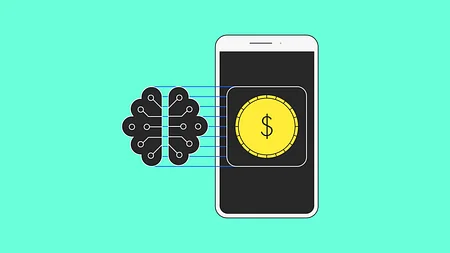ChatGPT can revolutionise customer support and financial literacy across the globe

Delivered straight to your inbox
Get each edition of Unfiltered - our no-BS, uncensored analysis of fintech news and hot topics sent to your inbox each fortnight.
Find out more
ChatGPT is unavoidable. Everyone has an opinion on it, but we haven’t yet scratched the surface of what it could unleash for financial services. Big banks are already turning their backs on it, but are they making a huge mistake?
ChatGPT’s potential to transform financial customer service, financial advice and financial inclusion is unparalleled. Here are just a few ways I think it can do it.
Customer Service
Let’s start with perhaps the most obvious – customer service. The software could devour all the FAQs, legal documents, terms and conditions and customer handbooks associated with a given product and churn out relevant responses to confused users. Previously highly rated customer interactions could also be feverishly hoovered and regurgitated – cheers humans, we’ll take it from here.
ChatGPT is also remarkably good at understanding human language; even the vaguest of prompts can be interpreted correctly. When it comes to customer service this has huge implications as it means the customer gets the answer they need quickly and efficiently without spending too much time talking to agents or lost in jargon and will probably have a more positive brand experience as well.
There are some good fintech chatbots out there (BoA, for example) but, trust me, before customer services properly embraces the power of this AI, we ain't seen nothing yet.
Things can be taken to the next level with far less effort.
Financial literacy and education
The importance of financial education and literacy cannot be overstated, and fintechs have been trying to get it right for years. Some of our favourite educational user journeys in Pulse utilise reward psychology with engaging quizzes, sometimes going as far as offering actual prize money – see Revolut.
With ChatGPT, though, things can be taken to the next level with far less effort. Instead of painstakingly trying to create captivating, one-size-fits-all educational copy, the AI can twist and turn until a satisfactory explanation is provided for every individual customer. Whether it’s financial well-being principles, investment approaches or complex Web3 terminology – the chatbot will keep tailoring its responses until the user finally understands how, say, a Decentralized Autonomous Organization (DAO) works.
How, or if, the tool should be integrated into fintech products themselves remains to be seen, but the fundamental software is very nearly there.
Financial education for developing nations
Having established how versatile ChatGPT can be in its delivery and interpretation of language, the software has huge potential in developing parts of the world.
Currently; chatbots, online material and digital products often poorly serve many developing nations when it comes to financial education. They’re rarely geared towards or available to these populations and are almost exclusively produced for and tested against western users.
By leaning on culturally relevant analogies, local dialects and references, the AI could be well-positioned to educate users from a vast array of developing countries, previously excluded from such resources. Whether it's basic financial education such as advice on budgeting, saving and managing debt, or more personalised financial guidance based on analysing income, expenses, and financial goals – the service could provide some life-changing help.
What’s more, where its information and guidance run dry, it could direct people to relevant financial resources such as online courses and government programs that are available in the user’s country or region.
While it may be premature to rely on now, let’s also remember that ChatGPT is still in its Beta phase.
There’s a way to go yet
However, there’s some way to go before this can practically be applied as the data sets that ChatGPT sources its responses from are predominantly western, so, as it stands, its application is limited in this department. But, by incorporating significantly more data sources from developing countries, improvements in the precision and efficiency of the AI will be noted for all users.
While it may be premature to rely on now, let’s also remember that ChatGPT is still in its Beta phase and incredible improvements are being witnessed at a remarkable pace. Since I started writing this piece, GPT-4 was released. The upgraded system operates in more languages, accepts image inputs and provides much more accurate answers.
My Unfiltered Opinion
As we eagerly anticipate the future of AI, one thing is clear: Open AI and GPT is certainly paving the way for groundbreaking advancements that are sure to revolutionize how customer service and financial literacy are consumed, for the better. So long as OpenAI chooses to incorporate a more diverse data set, and continues to improve the product at its current pace, the opportunities and implications for financial institutions and their customers in developing nations could be massive.




